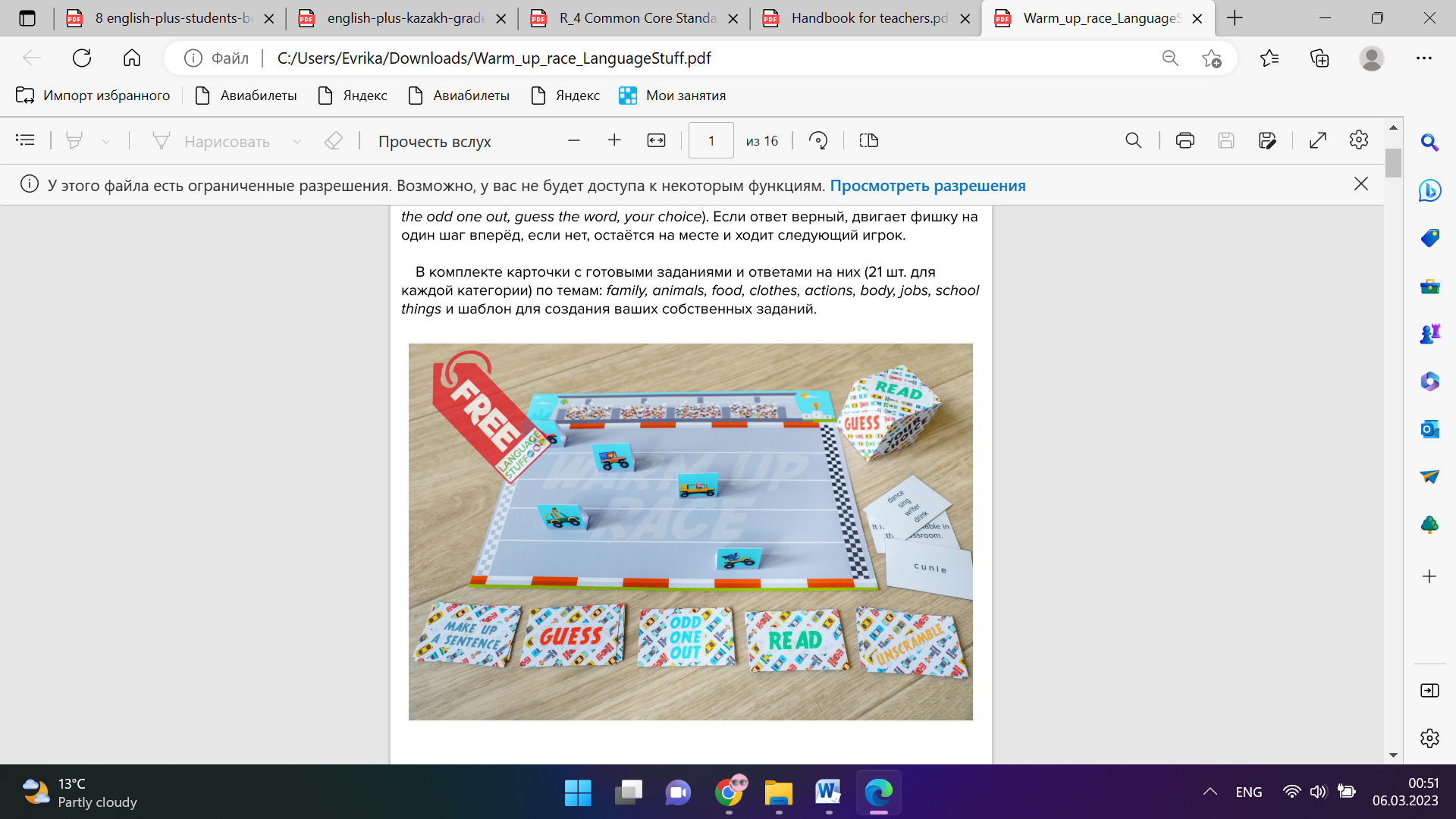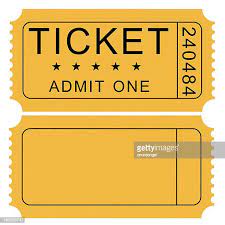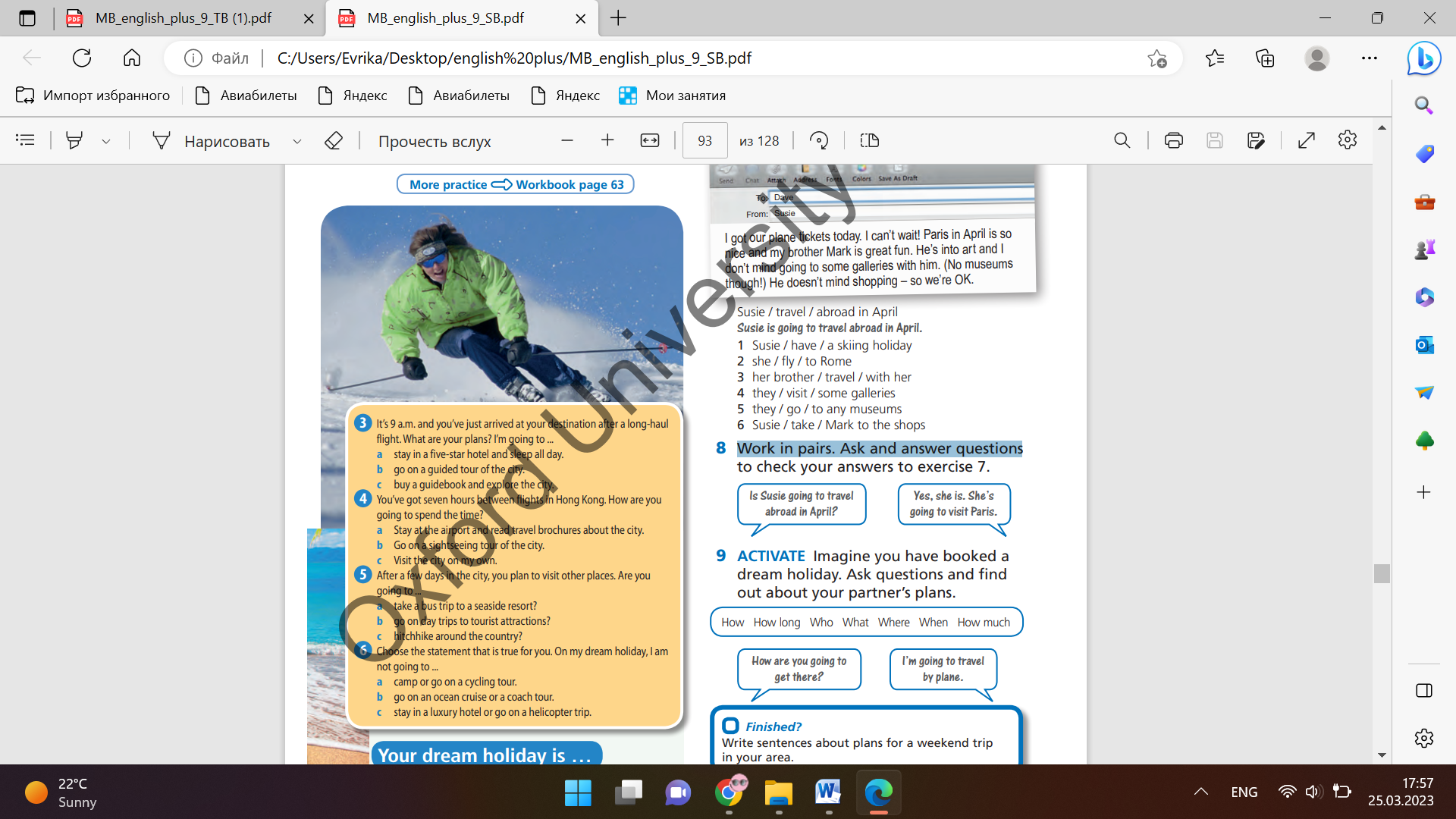
Short term plan: term 4
|
Unit 8 Travel and tourism |
|
||
|
Teacher name: |
|
||
|
Date: |
|
||
|
Grade: 9 |
Number present: |
absent: |
|
|
Lesson title |
Travel: nouns. |
||
|
Learning objectives |
9.1.4.1 evaluate and respond constructively to feedback from others 9.2.4.1 understand the main points of supported extended talk on a range of general and curricular topics 9.3.3.1 explain and justify their own and others’ point of view on a range of general and curricular topics |
||
|
Lesson objectives |
Learners will be able to: • Learn compound nouns associated with travel. • Complete a dream holiday quiz . • Learn how to extend your vocabular |
||
|
Value links |
Hospitality: Traditionally a nomadic culture, hospitality has always been an important part of Kazakh culture. |
||
|
Plan |
|||
|
Stages / Time |
Teachers’ actions |
Students’ actions |
Assessment criteria |
Resources |
|
Beginning of the lesson 5 min |
Organization moment 1.Greeting. Ask about the weather. The teacher sets the lesson objectives, letting students know what to anticipate from the lesson. Warm-up
Fasten your seat belts and get ready for the all-round race Lead – In • With books closed, ask students where they usually go on holiday. Elicit some ideas. • Write Dream holiday on the board and elicit the meaning. • Ask: What is your dream holiday? Elicit a range of ideas from the class and write useful vocabulary on the board |
Students' attention is drawn to the lesson. Students discuss the pictures in pairs. Determines the topic and aim of the lesson Students say different words from the picture |
Formative Assessment
Good job! Assessment criteria -Identify detailed information in extended conversation with support |
Pictures Student’s book |
|
Middle of the lesson Presentation part. 35 min |
Ex: 1 P:92 • Read the instructions with the class and make sure students understand what a compound noun is (a noun which is made of two or more words or parts of words). • Students work in pairs to make as many compound nouns as possible. Then they read the text and compare it with their lists. • Check answers and expand the list with any more compound nouns from the text Ex: 2 P:92 • Read the example definition, and elicit a definition of city break (a very short holiday in a city) as a further example. • Allow students time to write their definitions individually and then put students into pairs to test each other. • Ask some students to read their definitions to the class. In a stronger class, check understanding by asking students to put the words into sentences. Ex: 3 P:92 • Students complete the quiz individually, put them into pairs to compare their answers. • Ask some students to tell the class about their partner’s dream holiday. Ex: 4 P:92 • Elicit another combination with tour, e.g. sightseeing. • Put students into pairs to continue writing new combinations. Point out that nouns other than those seen in exercise 1 will need to be used Conclusion during the lesson some tasks differentiated by outcomes of the students and by their abilities. |
Students match the words in the boxes. How many compound nouns can you make? Then look at the My Dream Holiday quiz and compare the compound nouns with your list. Answers: guidebook, return ticket / trip / flight, day trip, suncream, diving equipment, long-haul flight, five-star hotel / accommodation, city break, mosquito net, luxury hotel / accommodation Students write definitions for six of the compound nouns. Work in pairs and test your partner Answers: Students’ own answers. Students do the My Dream Holiday quiz. Do you agree with the results? Why / Why not? Answers: Students’ own answers Students add two nouns from the quiz to each list Answers: 1 sightseeing 2 guided 3 agent 4 brochures |
Descriptor: - work in pairs -compare the compound nouns Total: 1 point Descriptor: - write definitions for six of the compound nouns - work in pairs Total: 1 point Descriptor: - do the quiz - complete the quiz individually Total: 1 point Descriptor: add two nouns from the quiz Total: 1 point |
Cards Worksheets |
|
End of the lesson 5 min |
FEEDBACK Learners provide feedback on what they have learned at the lesson. |
|
Students evaluate each other and encourage classmate with phrases like: Well done! Brilliant! Good job! I like it! . |
Poster
|
Short term plan: term 4
|
Unit 8 Travel and tourism |
|
||
|
Teacher name: |
|
||
|
Date: |
|
||
|
Grade: 9 |
Number present: |
absent: |
|
|
Lesson title |
To be going to |
||
|
Learning objectives |
9.3.4.1 respond with flexibility at both sentence and discourse level to unexpected comments on a range of general and curricular topics 9.5.1.1 plan, write, edit and proofread work at text level independently on a range of general and curricular topics 9.5.3.1 write with grammatical accuracy on a range of familiar general and curricular topics |
||
|
Lesson objectives |
Learners will be able to: • Learn the use of be going to for plans and intentions. • Practise using be going to to talk about plans and intentions |
||
|
Value links |
Tradition: Kazakh traditions and culture have been passed on from one generation to another through oral histories told by traditional Kazakh tribal leaders and elders. |
||
|
Plan |
|||
|
Stages / Time |
Teachers’ actions |
Students’ actions |
Assessment criteria |
Resources |
|
Beginning of the lesson 5 min |
Organization moment 1.Greeting. Ask about the weather. The teacher sets the lesson objectives, letting students know what to anticipate from the lesson. Warm-up
Fasten your seat belts and get ready for the all-round race Lead – In • With books closed, ask students where they usually go on holiday. Elicit some ideas. • Write Dream holiday on the board and elicit the meaning. • Ask: What is your dream holiday? Elicit a range of ideas from the class and write useful vocabulary on the board |
Students' attention is drawn to the lesson. Students discuss the pictures in pairs. Determines the topic and aim of the lesson Students say different words from the picture |
Formative Assessment
Good job! Assessment criteria -Identify detailed information in extended conversation with support |
Pictures Student’s book |
|
Middle of the lesson Presentation part. 35 min |
Ex: 5 P:93 • Ask students to read the quiz again and say if it refers to the past, present or future (the future). Ask: Does it talk about someone’s plans? (yes) • Ask students to identify the verb forms that are used to talk about plans, and complete the sentences Ex: 6 P:93 • In a weaker class, ask students to write their answers in pairs. In a stronger class, students write them individually. • Tell students to use the first listening to make notes. Give them time to write sentences, then play the CD again for any answers they missed or were unsure of. • Check answers as a class. Insist on full sentences Ex: 7 P:93 • Students work individually to read the email and complete the sentences. Ex: 8 P:88 • Read the example with the class. Check students know how to form the short answer. • Students ask and answer the rest of the questions
Conclusion during the lesson some tasks differentiated by outcomes of the students and by their abilities. |
Students complete the sentences from the quiz. Then choose two correct words to complete the rule Answers: 1 ’m going to 3 are, going to 2 ‘m not going to 4 Are, going to a intentions and c plan Students read Susie’s email. Then write affirmative and negative sentences using be going to Answers: 1 He’s going to spend one week there. 2 He’s going to travel with Charlie. 3 They are going to stay in a three-star hotel. 4 He’s going to swim in the pool. 5 He’s going to try diving. 6 They’re going to travel there by coach. travel there by coach . Students work in pairs. Ask and answer questions Answers: 1 Susie isn’t going to have a skiing holiday. 2 She isn’t going to fly to Rome. 3 Her brother is going to travel with her. 4 They’re going to visit some galleries 5 They aren’t going to go to any museums. 6 Susie is going to take Mark to the Students work in pairs. Ask and answer questions Answers: Students’ own answers |
Descriptor: - work in pairs - choose two correct words to complete the rule Total: 1 point Descriptor: - read Susie’s email - write affirmative and negative sentences using be going to Total: 1 point Descriptor: - work in pairs - answer the questions Total: 1 point Descriptor: - work in pairs - Ask and answer questions Total: 1 point |
Cards Worksheets |
|
End of the lesson 5 min |
FEEDBACK Learners provide feedback on what they have learned at the lesson. |
|
Students evaluate each other and encourage classmate with phrases like: Well done! Brilliant! |
Poster
|
Short term plan: term 4
|
Unit 8 Travel and tourism |
|
||
|
Teacher name: |
|
||
|
Date: |
|
||
|
Grade: 9 |
Number present: |
absent: |
|
|
Lesson title |
Holiday advice Talking about travelling |
||
|
Learning objectives |
9.2.5.1 recognize the attitude or opinion of the speaker(s) in unsupported extended talk on a wide range of general and curricular topics, including talk on a limited range of unfamiliar topics 9.4.8.1 use a wide range of familiar and unfamiliar paper and digital reference resources to 9.5.1.1 plan, write, edit and proofread work at text level independently on a range of general and curricular topics |
||
|
Lesson objectives |
Learners will be able to: • Read about good ideas for a holiday. • Read for general meaning and specific information. • Express your own opinions about holidays. • Learn about words which are often confused. • Practise using words which are often confused |
||
|
Value links |
Freedom: Freedom is the major value of the civil society being formed in Kazakhstan. This must provide everyone with the possibility of creative self-realization. |
||
|
Plan |
|||
|
Stages / Time |
Teachers’ actions |
Students’ actions |
Assessment criteria |
Resources |
|
Beginning of the lesson 5 min |
Organization moment 1.Greeting. Ask about the weather. The teacher sets the lesson objectives, letting students know what to anticipate from the lesson. Warm-up
Fasten your seat belts and get ready for the all-round race Lead – In • With books closed, ask: What do you usually take with you when you go on holiday? • Put students into pairs to write a list of things they take. • Elicit ideas from the class and write them on the board |
Students' attention is drawn to the lesson. Students discuss the pictures in pairs. Determines the topic and aim of the lesson Students say different words from the picture |
Formative Assessment
Good job! Assessment criteria -Identify detailed information in extended conversation with support |
Pictures Student’s book |
|
Middle of the lesson Presentation part. 35 min |
Ex: 1 P:94 • Look at the title and the headings together. Make sure everyone understands luggage and sports gear. Explain what chat means and establish that in this instance it refers to talking to people on holiday. • In a weaker class, prompt students by giving them some example advice and elicit whether they think it is good or not. Write on the board, e.g. Talk to everyone you meet. Use suncream. • Share ideas as a class. • In a stronger class, ask students to cover the text and listen to see if the same ideas are mentioned in the article Ex: 2 P:94 • Students read the text again and answer the questions individually. • Ask students to compare their answers in pairs before you check with the class Ex: 3 P:94 . • Explain that there are certain words which are easily confused. Tell students to look them up in their dictionaries. Encourage students to record the words with examples of how they are used, so that they can learn them in context. In a weaker class, give brief definitions of the words: a trip involves you going to a place and back again, and it is usually short (but there are exceptions, for example we say round-the-world trip); travel is the most general word and can be used as a noun or a verb; a journey is usually oneway and is more often used when the travelling takes a long time and is difficult; a voyage is a long journey, especially by sea or in space Conclusion during the lesson some tasks differentiated by outcomes of the students and by their abilities. |
Students look at the title and the headings in the text. What advice would you give someone about these things? Read, listen and compare your answers with the text Answers: Students’ own answers. Students read the text again and choose the correct answers Answers: 1 c 2 b 3 b 4 a 5 b 6 b Students check the meaning of the words in the box Answers: 1 journey 2 voyage 3 travel 4 trip 5 travel |
Descriptor: - work in pairs - read, listen and compare your answers with the text Total: 1 point Descriptor: - read the text again - answer the questions individually Total: 1 point Descriptor: - check the meaning of the words in the box Total: 1 point |
Cards Worksheets |
|
End of the lesson 5 min |
FEEDBACK Learners provide feedback on what they have learned at the lesson. |
|
Students evaluate each other and encourage classmate with phrases like: Well done! Brilliant! Good job! I like it! . |
Poster
|
жүктеу мүмкіндігіне ие боласыз
Бұл материал сайт қолданушысы жариялаған. Материалдың ішінде жазылған барлық ақпаратқа жауапкершілікті жариялаған қолданушы жауап береді. Ұстаз тілегі тек ақпаратты таратуға қолдау көрсетеді. Егер материал сіздің авторлық құқығыңызды бұзған болса немесе басқа да себептермен сайттан өшіру керек деп ойласаңыз осында жазыңыз
ҚМЖ 9 сынып Ағылшын тілі
ҚМЖ 9 сынып Ағылшын тілі
Short term plan: term 4
|
Unit 8 Travel and tourism |
|
||
|
Teacher name: |
|
||
|
Date: |
|
||
|
Grade: 9 |
Number present: |
absent: |
|
|
Lesson title |
Travel: nouns. |
||
|
Learning objectives |
9.1.4.1 evaluate and respond constructively to feedback from others 9.2.4.1 understand the main points of supported extended talk on a range of general and curricular topics 9.3.3.1 explain and justify their own and others’ point of view on a range of general and curricular topics |
||
|
Lesson objectives |
Learners will be able to: • Learn compound nouns associated with travel. • Complete a dream holiday quiz . • Learn how to extend your vocabular |
||
|
Value links |
Hospitality: Traditionally a nomadic culture, hospitality has always been an important part of Kazakh culture. |
||
|
Plan |
|||
|
Stages / Time |
Teachers’ actions |
Students’ actions |
Assessment criteria |
Resources |
|
Beginning of the lesson 5 min |
Organization moment 1.Greeting. Ask about the weather. The teacher sets the lesson objectives, letting students know what to anticipate from the lesson. Warm-up
Fasten your seat belts and get ready for the all-round race Lead – In • With books closed, ask students where they usually go on holiday. Elicit some ideas. • Write Dream holiday on the board and elicit the meaning. • Ask: What is your dream holiday? Elicit a range of ideas from the class and write useful vocabulary on the board |
Students' attention is drawn to the lesson. Students discuss the pictures in pairs. Determines the topic and aim of the lesson Students say different words from the picture |
Formative Assessment
Good job! Assessment criteria -Identify detailed information in extended conversation with support |
Pictures Student’s book |
|
Middle of the lesson Presentation part. 35 min |
Ex: 1 P:92 • Read the instructions with the class and make sure students understand what a compound noun is (a noun which is made of two or more words or parts of words). • Students work in pairs to make as many compound nouns as possible. Then they read the text and compare it with their lists. • Check answers and expand the list with any more compound nouns from the text Ex: 2 P:92 • Read the example definition, and elicit a definition of city break (a very short holiday in a city) as a further example. • Allow students time to write their definitions individually and then put students into pairs to test each other. • Ask some students to read their definitions to the class. In a stronger class, check understanding by asking students to put the words into sentences. Ex: 3 P:92 • Students complete the quiz individually, put them into pairs to compare their answers. • Ask some students to tell the class about their partner’s dream holiday. Ex: 4 P:92 • Elicit another combination with tour, e.g. sightseeing. • Put students into pairs to continue writing new combinations. Point out that nouns other than those seen in exercise 1 will need to be used Conclusion during the lesson some tasks differentiated by outcomes of the students and by their abilities. |
Students match the words in the boxes. How many compound nouns can you make? Then look at the My Dream Holiday quiz and compare the compound nouns with your list. Answers: guidebook, return ticket / trip / flight, day trip, suncream, diving equipment, long-haul flight, five-star hotel / accommodation, city break, mosquito net, luxury hotel / accommodation Students write definitions for six of the compound nouns. Work in pairs and test your partner Answers: Students’ own answers. Students do the My Dream Holiday quiz. Do you agree with the results? Why / Why not? Answers: Students’ own answers Students add two nouns from the quiz to each list Answers: 1 sightseeing 2 guided 3 agent 4 brochures |
Descriptor: - work in pairs -compare the compound nouns Total: 1 point Descriptor: - write definitions for six of the compound nouns - work in pairs Total: 1 point Descriptor: - do the quiz - complete the quiz individually Total: 1 point Descriptor: add two nouns from the quiz Total: 1 point |
Cards Worksheets |
|
End of the lesson 5 min |
FEEDBACK Learners provide feedback on what they have learned at the lesson. |
|
Students evaluate each other and encourage classmate with phrases like: Well done! Brilliant! Good job! I like it! . |
Poster
|
Short term plan: term 4
|
Unit 8 Travel and tourism |
|
||
|
Teacher name: |
|
||
|
Date: |
|
||
|
Grade: 9 |
Number present: |
absent: |
|
|
Lesson title |
To be going to |
||
|
Learning objectives |
9.3.4.1 respond with flexibility at both sentence and discourse level to unexpected comments on a range of general and curricular topics 9.5.1.1 plan, write, edit and proofread work at text level independently on a range of general and curricular topics 9.5.3.1 write with grammatical accuracy on a range of familiar general and curricular topics |
||
|
Lesson objectives |
Learners will be able to: • Learn the use of be going to for plans and intentions. • Practise using be going to to talk about plans and intentions |
||
|
Value links |
Tradition: Kazakh traditions and culture have been passed on from one generation to another through oral histories told by traditional Kazakh tribal leaders and elders. |
||
|
Plan |
|||
|
Stages / Time |
Teachers’ actions |
Students’ actions |
Assessment criteria |
Resources |
|
Beginning of the lesson 5 min |
Organization moment 1.Greeting. Ask about the weather. The teacher sets the lesson objectives, letting students know what to anticipate from the lesson. Warm-up
Fasten your seat belts and get ready for the all-round race Lead – In • With books closed, ask students where they usually go on holiday. Elicit some ideas. • Write Dream holiday on the board and elicit the meaning. • Ask: What is your dream holiday? Elicit a range of ideas from the class and write useful vocabulary on the board |
Students' attention is drawn to the lesson. Students discuss the pictures in pairs. Determines the topic and aim of the lesson Students say different words from the picture |
Formative Assessment
Good job! Assessment criteria -Identify detailed information in extended conversation with support |
Pictures Student’s book |
|
Middle of the lesson Presentation part. 35 min |
Ex: 5 P:93 • Ask students to read the quiz again and say if it refers to the past, present or future (the future). Ask: Does it talk about someone’s plans? (yes) • Ask students to identify the verb forms that are used to talk about plans, and complete the sentences Ex: 6 P:93 • In a weaker class, ask students to write their answers in pairs. In a stronger class, students write them individually. • Tell students to use the first listening to make notes. Give them time to write sentences, then play the CD again for any answers they missed or were unsure of. • Check answers as a class. Insist on full sentences Ex: 7 P:93 • Students work individually to read the email and complete the sentences. Ex: 8 P:88 • Read the example with the class. Check students know how to form the short answer. • Students ask and answer the rest of the questions
Conclusion during the lesson some tasks differentiated by outcomes of the students and by their abilities. |
Students complete the sentences from the quiz. Then choose two correct words to complete the rule Answers: 1 ’m going to 3 are, going to 2 ‘m not going to 4 Are, going to a intentions and c plan Students read Susie’s email. Then write affirmative and negative sentences using be going to Answers: 1 He’s going to spend one week there. 2 He’s going to travel with Charlie. 3 They are going to stay in a three-star hotel. 4 He’s going to swim in the pool. 5 He’s going to try diving. 6 They’re going to travel there by coach. travel there by coach . Students work in pairs. Ask and answer questions Answers: 1 Susie isn’t going to have a skiing holiday. 2 She isn’t going to fly to Rome. 3 Her brother is going to travel with her. 4 They’re going to visit some galleries 5 They aren’t going to go to any museums. 6 Susie is going to take Mark to the Students work in pairs. Ask and answer questions Answers: Students’ own answers |
Descriptor: - work in pairs - choose two correct words to complete the rule Total: 1 point Descriptor: - read Susie’s email - write affirmative and negative sentences using be going to Total: 1 point Descriptor: - work in pairs - answer the questions Total: 1 point Descriptor: - work in pairs - Ask and answer questions Total: 1 point |
Cards Worksheets |
|
End of the lesson 5 min |
FEEDBACK Learners provide feedback on what they have learned at the lesson. |
|
Students evaluate each other and encourage classmate with phrases like: Well done! Brilliant! |
Poster
|
Short term plan: term 4
|
Unit 8 Travel and tourism |
|
||
|
Teacher name: |
|
||
|
Date: |
|
||
|
Grade: 9 |
Number present: |
absent: |
|
|
Lesson title |
Holiday advice Talking about travelling |
||
|
Learning objectives |
9.2.5.1 recognize the attitude or opinion of the speaker(s) in unsupported extended talk on a wide range of general and curricular topics, including talk on a limited range of unfamiliar topics 9.4.8.1 use a wide range of familiar and unfamiliar paper and digital reference resources to 9.5.1.1 plan, write, edit and proofread work at text level independently on a range of general and curricular topics |
||
|
Lesson objectives |
Learners will be able to: • Read about good ideas for a holiday. • Read for general meaning and specific information. • Express your own opinions about holidays. • Learn about words which are often confused. • Practise using words which are often confused |
||
|
Value links |
Freedom: Freedom is the major value of the civil society being formed in Kazakhstan. This must provide everyone with the possibility of creative self-realization. |
||
|
Plan |
|||
|
Stages / Time |
Teachers’ actions |
Students’ actions |
Assessment criteria |
Resources |
|
Beginning of the lesson 5 min |
Organization moment 1.Greeting. Ask about the weather. The teacher sets the lesson objectives, letting students know what to anticipate from the lesson. Warm-up
Fasten your seat belts and get ready for the all-round race Lead – In • With books closed, ask: What do you usually take with you when you go on holiday? • Put students into pairs to write a list of things they take. • Elicit ideas from the class and write them on the board |
Students' attention is drawn to the lesson. Students discuss the pictures in pairs. Determines the topic and aim of the lesson Students say different words from the picture |
Formative Assessment
Good job! Assessment criteria -Identify detailed information in extended conversation with support |
Pictures Student’s book |
|
Middle of the lesson Presentation part. 35 min |
Ex: 1 P:94 • Look at the title and the headings together. Make sure everyone understands luggage and sports gear. Explain what chat means and establish that in this instance it refers to talking to people on holiday. • In a weaker class, prompt students by giving them some example advice and elicit whether they think it is good or not. Write on the board, e.g. Talk to everyone you meet. Use suncream. • Share ideas as a class. • In a stronger class, ask students to cover the text and listen to see if the same ideas are mentioned in the article Ex: 2 P:94 • Students read the text again and answer the questions individually. • Ask students to compare their answers in pairs before you check with the class Ex: 3 P:94 . • Explain that there are certain words which are easily confused. Tell students to look them up in their dictionaries. Encourage students to record the words with examples of how they are used, so that they can learn them in context. In a weaker class, give brief definitions of the words: a trip involves you going to a place and back again, and it is usually short (but there are exceptions, for example we say round-the-world trip); travel is the most general word and can be used as a noun or a verb; a journey is usually oneway and is more often used when the travelling takes a long time and is difficult; a voyage is a long journey, especially by sea or in space Conclusion during the lesson some tasks differentiated by outcomes of the students and by their abilities. |
Students look at the title and the headings in the text. What advice would you give someone about these things? Read, listen and compare your answers with the text Answers: Students’ own answers. Students read the text again and choose the correct answers Answers: 1 c 2 b 3 b 4 a 5 b 6 b Students check the meaning of the words in the box Answers: 1 journey 2 voyage 3 travel 4 trip 5 travel |
Descriptor: - work in pairs - read, listen and compare your answers with the text Total: 1 point Descriptor: - read the text again - answer the questions individually Total: 1 point Descriptor: - check the meaning of the words in the box Total: 1 point |
Cards Worksheets |
|
End of the lesson 5 min |
FEEDBACK Learners provide feedback on what they have learned at the lesson. |
|
Students evaluate each other and encourage classmate with phrases like: Well done! Brilliant! Good job! I like it! . |
Poster
|

шағым қалдыра аласыз





















